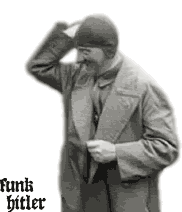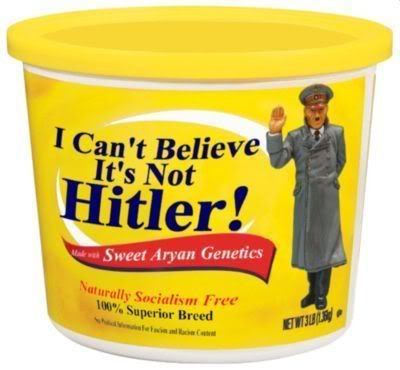Sexpeare in Luv
Μέλος
- Εγγρ.
- 25 Ιαν 2008
- Μηνύματα
- 837
- Like
- 2
- Πόντοι
- 6
Αντιγράφω από το αναρχικό site ORGANISE!for class struggle anarchism
Born in Argentina to a Cuban aristocratic family who had fallen on hard times but who still had much wealth, Guevara had a comfortable upbringing. When Juan and Eva Peron started on their rise to power, using populism and appeals to workers and peasants to install a regime that had many fascist characteristics (1944-1952) Guevara was still a youth. At this period he seemed remarkably disinterested in politics and failed to offer any opinions for or against the Peron regime....
...Che proved to be the most authoritarian and brutal of the guerrilla leaders. In fact Che went about turning volunteer bands of guerrillas into a classic Army, with strict discipline and hierarchy. As he himself wrote: "Due to the lack of discipline among the new men... it was necessary to establish a rigid discipline, organise a high command and set up a Staff".
He demanded the death penalty for "informers, insubordinates, malingerers and deserters". He himself personally carried out executions. Indeed the first execution carried out against an informer by the Castroists was undertaken by Che. He wrote: "I ended the problem giving him a shot with a .32 pistol in the right side of the brain". On another occasion he planned on shooting a group of guerrillas who had gone on hunger strike because of bad food. Fidel intervened to stop him. Another guerrilla who dared to question Che was ordered into battle without a weapon!
The anarchists and anarcho-syndicalists had their press closed down and many militants were thrown in prison. Che was directly implicated in this. This was followed in 1962 with the banning of the Trotskyists and the imprisonment of their militants. Che said: "You cannot be for the revolution and be against the Cuban Communist Party".
Yes, Che was very brave physically. Yes, he was single-mindedly devoted to what he saw as the revolution and socialism. Yes, he refused the privilege and luxury granted to other leaders of Castroist Cuba, taking an average wage and working hard in his various government jobs. But many militarists, fascists and religious fanatics share these characteristics of bravery and self-sacrifice. Che's good looks and 'martyr's' death turned him into an icon, an icon duly exploited by all those wanting to turn a fast buck selling 'revolutionary' chic.
But good looks and bravery camouflage what Che really was. A ruthless authoritarian and Stalinist, who expressed admiration for the Peronista authoritarian nationalists, Che acted as a willing tool of the Soviet bloc in spreading their influence. Even when he fell out with the USSR about the possibility of guerrilla war in Latin America, he still remained a convinced Stalinist with admiration for China and North Korea. He had no disagreements with the Soviets about what sort of society he wanted -a bureaucratic authoritarian state-capitalist set up with contempt for the masses.
Che may look like the archetypal romantic revolutionary. In reality he was a tool of the Stalinist power blocs and a partisan of nuclear war. His attitudes and actions reveal him to be no friend of the working masses, whether they be workers or peasants.
Born in Argentina to a Cuban aristocratic family who had fallen on hard times but who still had much wealth, Guevara had a comfortable upbringing. When Juan and Eva Peron started on their rise to power, using populism and appeals to workers and peasants to install a regime that had many fascist characteristics (1944-1952) Guevara was still a youth. At this period he seemed remarkably disinterested in politics and failed to offer any opinions for or against the Peron regime....
...Che proved to be the most authoritarian and brutal of the guerrilla leaders. In fact Che went about turning volunteer bands of guerrillas into a classic Army, with strict discipline and hierarchy. As he himself wrote: "Due to the lack of discipline among the new men... it was necessary to establish a rigid discipline, organise a high command and set up a Staff".
He demanded the death penalty for "informers, insubordinates, malingerers and deserters". He himself personally carried out executions. Indeed the first execution carried out against an informer by the Castroists was undertaken by Che. He wrote: "I ended the problem giving him a shot with a .32 pistol in the right side of the brain". On another occasion he planned on shooting a group of guerrillas who had gone on hunger strike because of bad food. Fidel intervened to stop him. Another guerrilla who dared to question Che was ordered into battle without a weapon!
The anarchists and anarcho-syndicalists had their press closed down and many militants were thrown in prison. Che was directly implicated in this. This was followed in 1962 with the banning of the Trotskyists and the imprisonment of their militants. Che said: "You cannot be for the revolution and be against the Cuban Communist Party".
Yes, Che was very brave physically. Yes, he was single-mindedly devoted to what he saw as the revolution and socialism. Yes, he refused the privilege and luxury granted to other leaders of Castroist Cuba, taking an average wage and working hard in his various government jobs. But many militarists, fascists and religious fanatics share these characteristics of bravery and self-sacrifice. Che's good looks and 'martyr's' death turned him into an icon, an icon duly exploited by all those wanting to turn a fast buck selling 'revolutionary' chic.
But good looks and bravery camouflage what Che really was. A ruthless authoritarian and Stalinist, who expressed admiration for the Peronista authoritarian nationalists, Che acted as a willing tool of the Soviet bloc in spreading their influence. Even when he fell out with the USSR about the possibility of guerrilla war in Latin America, he still remained a convinced Stalinist with admiration for China and North Korea. He had no disagreements with the Soviets about what sort of society he wanted -a bureaucratic authoritarian state-capitalist set up with contempt for the masses.
Che may look like the archetypal romantic revolutionary. In reality he was a tool of the Stalinist power blocs and a partisan of nuclear war. His attitudes and actions reveal him to be no friend of the working masses, whether they be workers or peasants.





 Σωστα.... Απλα τωρα θα το κανουν νομιμα πια... Που ειναι ο Χιτλερ θα ετριβε τα χερια του τωρα...
Σωστα.... Απλα τωρα θα το κανουν νομιμα πια... Που ειναι ο Χιτλερ θα ετριβε τα χερια του τωρα... 